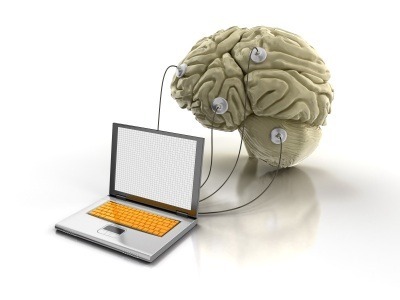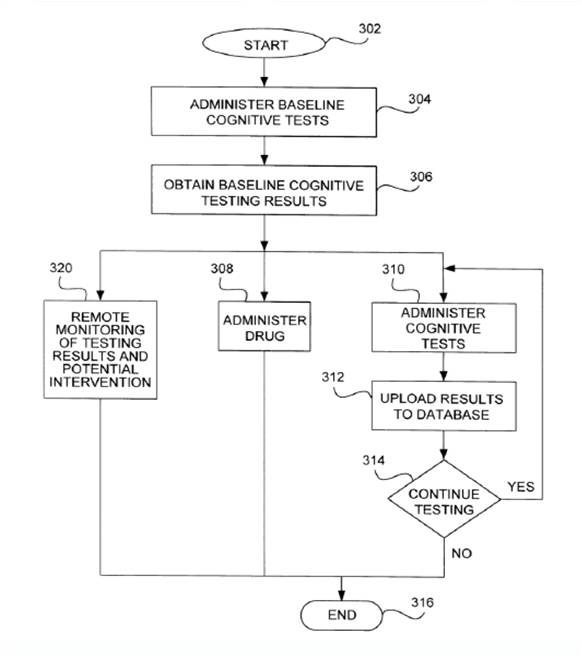Source: http://totalbrainhealth.com/?p=5900
DAY 27
HOW OUR BRAINS GROW. What’s this about brains never ending ability to change? Neuroscientist Sandrine Thuret offers practical advice on how we can help our brains better perform neurogenisis, improvie mood and increase memory formation.
…
Source: http://totalbrainhealth.com/?p=5900
DAY 27
HOW OUR BRAINS GROW. What’s this about brains never ending ability to change? Neuroscientist Sandrine Thuret offers practical advice on how we can help our brains better perform neurogenisis, improvie mood and increase memory formation.
…
Source: http://totalbrainhealth.com/?p=5907
DAY 29
OUR BRAINS: THE FINAL FRONTIER? The human brain is a one of the great frontiers in the study of human physiology according to Dr. Lara Boyd. Listen as she describes how neuroplasticity gives you the power to shape your brain.
…
Source: http://totalbrainhealth.com/?p=5907
DAY 29
OUR BRAINS: THE FINAL FRONTIER? The human brain is a one of the great frontiers in the study of human physiology according to Dr. Lara Boyd. Listen as she describes how neuroplasticity gives you the power to shape your brain.
…
Source: http://sharpbrains.com/blog/2017/02/07/study-debunks-4-common-myths-about-brain-training-and-lifelong-cognitive-enhancement/
 If the media is your main source of information about brain training and cognitive enhancement, you will probably believe the following:
If the media is your main source of information about brain training and cognitive enhancement, you will probably believe the following:
1) All brain training is the same…
2) …and it simply doesn’t work.
3) Commercial brain training programs, especially, don’t work.
4) How could they work? Genetics is destiny, aging is a predetermined process…so by age 60 or 70 or 80, “you can’t teach an old dog new tricks.”
If you tracked and analyzed the scientific literature around cognitive training, cognitive therapies, biofeedback, meditation, brain reserve and neuroplasticity in general, you’d know those 4 beliefs are wrong. They are myths that prevent a more nuanced conversation about brain-enhancing lifestyles and about the emerging brain traini…
Source: http://sharpbrains.com/blog/2017/02/07/study-debunks-4-common-myths-about-brain-training-and-lifelong-cognitive-enhancement/
 If the media is your main source of information about brain training and cognitive enhancement, you will probably believe the following:
If the media is your main source of information about brain training and cognitive enhancement, you will probably believe the following:
1) All brain training is the same…
2) …and it simply doesn’t work.
3) Commercial brain training programs, especially, don’t work.
4) How could they work? Genetics is destiny, aging is a predetermined process…so by age 60 or 70 or 80, “you can’t teach an old dog new tricks.”
If you tracked and analyzed the scientific literature around cognitive training, cognitive therapies, biofeedback, meditation, brain reserve and neuroplasticity in general, you’d know those 4 beliefs are wrong. They are myths that prevent a more nuanced conversation about brain-enhancing lifestyles and about the emerging brain traini…
Source: http://www.aarp.org/health/healthy-living/info-2017/benefits-of-a-little-exercise-cs.html
4 days ago … AARP Membership: Join or Renew for Just $16 a Year. Federal guidelines for
adults call for 150 minutes of physical activity weekly to prevent ……
Source: http://www.aarp.org/health/healthy-living/info-2017/benefits-of-a-little-exercise-cs.html
4 days ago … AARP Membership: Join or Renew for Just $16 a Year. Federal guidelines for
adults call for 150 minutes of physical activity weekly to prevent ……
Source: http://www.aarp.org/health/conditions-treatments/info-2017/misophonia-everyday-sounds-unbearable-cs.html
47 minutes ago … AARP Membership: Join or Renew for Just $16 a Year. While most of us may find
these commonplace sounds mildly annoying, people with a ……
Source: http://www.aarp.org/health/conditions-treatments/info-2017/misophonia-everyday-sounds-unbearable-cs.html
47 minutes ago … AARP Membership: Join or Renew for Just $16 a Year. While most of us may find
these commonplace sounds mildly annoying, people with a ……
Source: https://www.niddk.nih.gov/health-information/healthy-moments/Pages/archive.aspx#hm444
Dr. Rodgers is joined by Dr. Josie Briggs, who explains what you need to know about dietary supplements….
Source: https://www.niddk.nih.gov/health-information/healthy-moments/Pages/archive.aspx#hm444
Dr. Rodgers is joined by Dr. Josie Briggs, who explains what you need to know about dietary supplements….
Source: http://sharpbrains.com/blog/2017/02/03/remote-computer-implemented-methods-for-cognitive-testing-key-neurotech-patent-4/

— Illustrative image from U.S. Patent No. 6,280,198
Today we are featuring a 2001 patent originally assigned to Scientific Learning Corp, and now to Lumos Labs Inc. (As mentioned, we are featuring a foundational Pervasive Neurotech patent a day, from older to newer by issue date)
U.S. Patent No. 6,280,198: Remote computer implemented methods for cognitive testing…
Source: http://sharpbrains.com/blog/2017/02/03/remote-computer-implemented-methods-for-cognitive-testing-key-neurotech-patent-4/

— Illustrative image from U.S. Patent No. 6,280,198
Today we are featuring a 2001 patent originally assigned to Scientific Learning Corp, and now to Lumos Labs Inc. (As mentioned, we are featuring a foundational Pervasive Neurotech patent a day, from older to newer by issue date)
U.S. Patent No. 6,280,198: Remote computer implemented methods for cognitive testing…
Source: http://womensbrainhealth.org/think-about-it/maintaining-a-healthy-weight-could-prevent-alzheimers
by Laurie Edwards-Tate for CDN: There is a surprising link between being overweight in mid-life and early development of Alzheimer’s disease. As part of a 14-year study known as the Baltimore Longitudinal Study of Aging (BLSA), researchers from the National……
Source: http://womensbrainhealth.org/think-about-it/maintaining-a-healthy-weight-could-prevent-alzheimers
by Laurie Edwards-Tate for CDN: There is a surprising link between being overweight in mid-life and early development of Alzheimer’s disease. As part of a 14-year study known as the Baltimore Longitudinal Study of Aging (BLSA), researchers from the National……
Source: http://brainblogger.com/2017/02/05/neuroeconomics-capitalisation-on-consumer-control/
In an attempt to explain the internal processes governing the occurrences in the economic world, neuroeconomics is an emerging interdisciplinary field attempting to merge psychology and economic theory. Simply put, the biological basis of behavioral economics; how and why people make judgements and decisions with economic consequences in terms of simple cerebral biology. But why should we be interested? Surely considering the brain in more behaviorist, 20th century ‘black box’ terms is much more simple – input information, output decision. And whilst, arguably, many economic theories do consider human behavior and choice in such a way, psychology would argue otherwise. Neuroeconomics attempts to bridge the gap between input and output, analyzing the chemicals and structures, which provide the biological basis for individuality in processing and decision-making.
Whilst the majority of the cerebral cortex is in fact dedicated to the interpretation of such compl…
Source: http://brainblogger.com/2017/02/05/neuroeconomics-capitalisation-on-consumer-control/
In an attempt to explain the internal processes governing the occurrences in the economic world, neuroeconomics is an emerging interdisciplinary field attempting to merge psychology and economic theory. Simply put, the biological basis of behavioral economics; how and why people make judgements and decisions with economic consequences in terms of simple cerebral biology. But why should we be interested? Surely considering the brain in more behaviorist, 20th century ‘black box’ terms is much more simple – input information, output decision. And whilst, arguably, many economic theories do consider human behavior and choice in such a way, psychology would argue otherwise. Neuroeconomics attempts to bridge the gap between input and output, analyzing the chemicals and structures, which provide the biological basis for individuality in processing and decision-making.
Whilst the majority of the cerebral cortex is in fact dedicated to the interpretation of such compl…
 If the media is your main source of information about brain training and cognitive enhancement, you will probably believe the following:
If the media is your main source of information about brain training and cognitive enhancement, you will probably believe the following:
